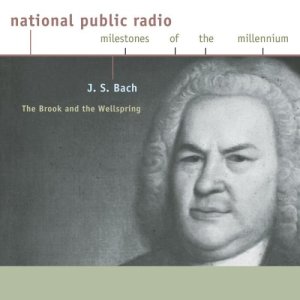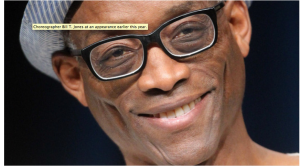What an unexpected delight on Good Friday to see today’s excellent Deceptive Cadence blog from my old my mates at NPR devoted to a program we produced 14 years ago, as part of our ambitious Milestones of the Millennium series.
And I do mean ambitious: We attempted nothing less than to “create a picture in sound of the pivotal events, places, movements, artists and musical works of the past 1000 years” through what amounted to a weekly documentary folded into our ongoing five-day-a-week production of Performance Today. Oh yeah, and also with “build outs” on this newfangled Interwebs thingy.
But wait -there was more! We also entered into a partnership with Sony Classical to create an entire Milestones of the Millennium CD project: “The program series will be accompanied by Sony’s release of historic recordings highlighting the development of music over the past 1000 years. Each Sony Classical compact disc will contain musical choices inspired by the series, with liner notes written by the NPR commentators.”
High concept as hell, balanced by decidedly modest sales in the marketplace. Doubt anyone has the entire collection, but I was surprised to see that after being out of print for quite some time, Sony has now made a few of the titles available as MP3 downloads on Amazon and other sites. And you do see the odd CD copy for sale here and there.
But, back to Bach: Of the entire two years’ worth of productions, this program on Bach’s St. Matthew Passion was one of the very best, hosted by NPR’s Lynn Neary and produced by Jeffrey Freymann-Weyr. It’s a “guided tour” through Bach’s St. Matthew Passion, with commentary from such luminaries as noated Bach scholars Christoph Wolff and MIchael Marissen, tenor Ian Bostridge, conductors Joshua Rifkin,Ton Koopman, and Kenneth Slowik, as well as soprano Ann Monoyios. Take a listen here.
Incidentally, Bach was the subject of the very first MIlestones of Millennium program, which aired January 1, 1999, was Johann Sebastian Bach: The Brook and the Wellspring, a commentary by the Boston Conservatory’s Jan Swafford: “Using the metaphor suggested by the composer’s name (“Bach” is German for “brook”), Swafford explains how Bach emerged from a family of musicians to become perhaps the greatest master and innovator of all time.”














You must be logged in to post a comment.